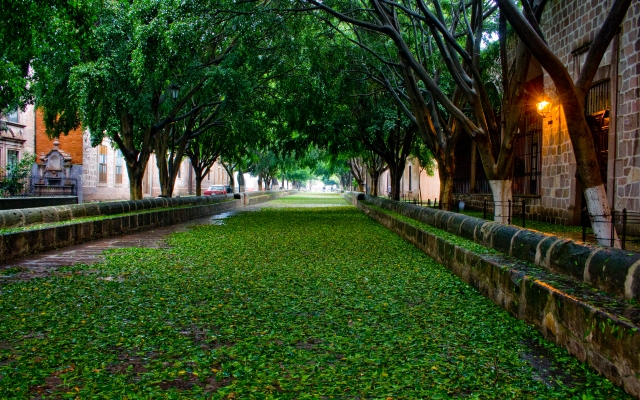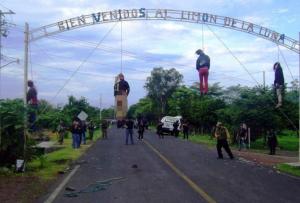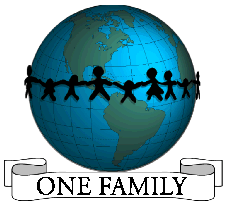
A home on the coast of Michoacán, Mexico. Views of the ocean. Sea breezes waft through the windows as a loving family with three handsome teenaged sons gathers for dinner. This characterized the life of one of the families I met this week at the Nazareth hospitality center.
A life that no longer exists.
Threatened by the drug cartel’s out-of-control violence in the state of Michoacán, the entire family fled their idyllic life and presented themselves at the U.S.-Mexico border seeking political asylum. Unfortunately, only four members of their family made it to our center. Immigration and Customs Enforcement decided to detain their husband and father.
It’s something I’ve been noticing more lately. Males 18 years and older being detained indiscriminately. Sometimes there is a reason. Maybe they tried to enter the country previously. Maybe there’s something questionable on their record. But often it seems to be a random decision, depending on the ICE agent handling their case.
Some suggest ICE is attempting to send a message back to Latin America: if you come, your family will be separated. This disturbs and infuriates me. Are we really using separation of family as a deterrent? Is there justification to cause such pain to a family that has already endured so much?
I think of this family. They did not want to come to the U.S. They told us of their beautiful home. How they hated to leave. And that they hope to return some day.

For now, that’s not possible. At least not without putting their sons in danger.
Other volunteers have heard alarming stories from those who’ve fled Michoacán. How the cartels force people off land that has been in their family for generations. How they threaten to kill or “disappear” their sons. How they instill fear in the community by hanging corpses from bridges. The people can’t trust the police. Often they’re involved themselves. Some communities have tried to set up their own vigilante groups. Others, like this family, flee.

Fortunately, all the sons in this family are under 18. Otherwise, ICE could have detained one of them as well.
That happened to another mom who showed up this week with only two of her three children. Her 18-year-old son had been detained. They’d made it all the way from Guatemala, crossing treacherous Mexico, only to be separated in the U.S.
So, what’s next for these families?
Now they must make the agonizing decision of moving on to their designated relative’s home without their brother, husband, or son, who will remain in detention and be processed separately. Possibly he will remain here a year or more. Most likely, he will be deported.
I see the anxiety in this mother’s face when she comes to the office to ask when she can see her son. One of our volunteers will drive her to the detention facility on her designated visiting night.
I feel my heart for this woman. I know the joy of giving birth to a son. And the sorrow of being separated from him.
But this is what I cannot imagine: leaving my son behind in a detention facility in a foreign country not knowing when I will see him again. If he is deported, what will he do when he arrives back in the country alone? Will he be safe?
I feel helpless in what I have to offer her. Yet I want to offer something.
Later I go retrieve blankets for our new arrivals. I pass the room of the family from Michoacán. The mom is seated on her bed facing the doorway. The boys perch on the edge of a cot, their backs to me, fully attentive to their mother. Her face is somber. But her eyes are soft with something I easily recognize — her deep love for her sons, right alongside the pain of what she has to tell them.
Tonight, they will visit their father in detention. Tomorrow they will head for their relatives on the west coast as originally planned. Without their dad.
There are more stories like this. More ways my heart has been tested. I’ve come to see that the more I open my heart to strangers, the more I risk. Because there’s a definite risk when you look into the face of another.
You see yourself.
And you realize that we truly are connected as one family. We share the same feelings. The same sorrows and joys. The same desires for ourselves and our children. The same Spirit.
I can no longer NOT care. That’s the risk of being a family. What about you? Will you join us?


Beautiful! Thank you for sharing! I’ll visit someday! My great grandparents were from there. I’ve never been.
LikeLike
I really hope things calm down though.
LikeLike
There may be times when your heart feels as though it is being stretched to the breaking point, Pauline, but with this work you are increasing your heart’s capacity to bear witness to suffering and to respond with love. You are also shining the light of truth on a messy, painful, and (at times) shameful area of U.S. policy that wreaks terrible havoc on immigrant families. Without your stories, most of us would never know this was even happening. Thank you for the clarity and courage of your witness.
Love,
Rob
LikeLike
I am touched by your words. So sad.
LikeLike